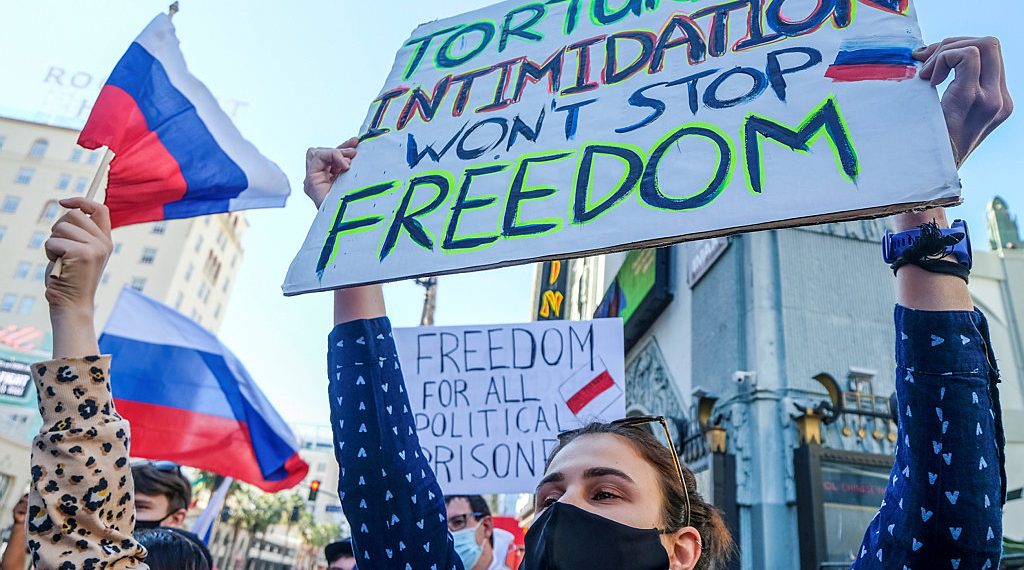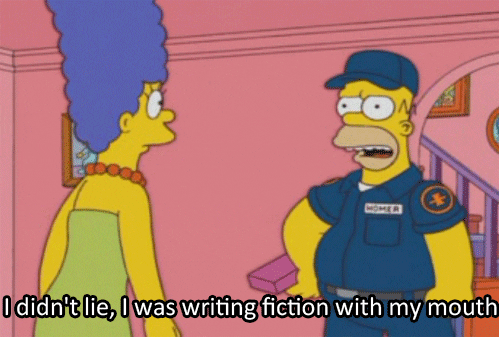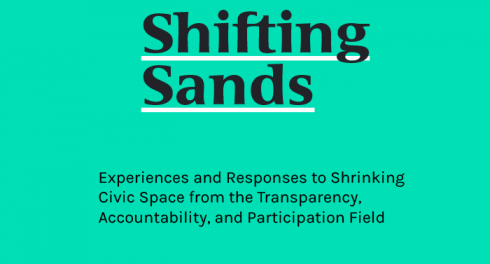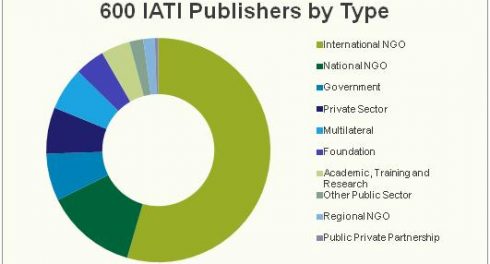Highlights
- No such thing as a safe haven?
- A different big lie
- Luxembourg reveal
- Go political or go tech?
- Hold the line
- TAI Spotlight: Bridging the beneficial ownership gap: from advocacy to actual transparency
No such thing as a safe haven?

Photo Source: Israel Hayom
The ability of governments to clamp down on activists at home is sadly on display all too often (see Russia and Myanmar for starters), but Freedom House draw our attention to growing transnational repression – governments reaching across borders to silence dissent among diasporas and exiles. To hear some chilling examples, listen to Nate Schenkkan and Isabel Linzer discuss the variety of forms transnational repression can take, who is targeted, and recommendations to buck this growing trend.
Of course, accountability of police and military who repress often remains elusive. The Lagos State Judicial Panel of Inquiry probing the alleged shooting of the #EndSARS protesters at the Lekki toll gate lost two representatives this past week. First, youth representative Rinu Oduala stepped down in protest at a lack of transparency, then Ebun Adegboruwa, stepped down this weekend after police prevented a protest at the gate.
What of protest in the age of COVID? Carnegie Europe finds that government restrictions and responses to mitigating the spread of coronavirus can unnecessarily curtail freedom of assembly – yet civic activists continue to find creative ways to safely exercise civic freedoms and voices.
Complement the Democracy Index we featured last week, by checking out the new Digital Democracy Database, which seeks to identify and analyze cases of digital democracy. Over 1,000 cases from 50 countries are the basis for encouraging good practices of open participatory governance worldwide.
With some of that spirit, Raghuram Rajan urges “building back broader” from the pandemic – namely that community involvement and engagement in a project be an important criterion for receiving government funding.
A different big lie

Staying with pandemic recovery, Tax Justice Network Africa and partner civil society organizations want the African Union to work towards fiscal expansion based on a just and green stimulus. Their proposed 2021 Summit resolutions include: seeking meaningful debt solutions, promoting taxation of the digital economy, and sealing financial leakages within the extractive sector.
Picking up on debt concerns, Deborah Brautigam and Meg Rithmire unpack the China “debt trap” myth with a detailed explanation of an oft-cited Sri Lankan port case. Their submission – the debt-trap narrative is “a lie, and a powerful one”.
What of oil-dependent countries? Private firms may be under pressure to adapt to climate change – for example, see Shell’s net zero promises – but what of national oil companies? Their incentives are very different. New research from David Manley and Patrick Heller offers a warning that national oil companies are on track to invest $400 billion in costly oil and gas projects that are incompatible with meeting Paris climate commitments.
The Extractive Industries Transparency Initiative and Open Ownership announce a new initiative to tackle corruption in the extractives sector with backing of BHP Foundation. Meanwhile, in Myanmar, extractives disruption of a different kind as miners join protests against the coup and force Chinese owned mines to go idle.
Staying in Myanmar, a new report uncovers a web of businesses linked to Myanmar military Senior General and his family, suggesting financial interests as a motive for the coup.
The Corruption Perceptions Index 2020 found that nations in the Asia-Pacific struggle to deliver on promised anti-corruption initiatives and legislative reform due to the ongoing pandemic. But the Westminster Foundation for Democracy may provide some hope – discussing Parliament’s relationship with anti-corruption agencies in Indonesia, Pakistan, and the Maldives, they offer a framework to set up independent anti-corruption agencies (ACAs) for success.
Luxembourg reveal

Image Credit: Irish Times
Turning to Europe, Swiss banking behemoth Credit Suisse has been accused of enabling mega-looting in Mozambique by clearly concealing corruption in their practices with the government. In neighboring Austria, the finance minister Gernot Blümel has his house searched in a casino-related corruption and bribery case centering on the gambling giant Novomatic. This is barely two months after his predecessor was found guilty of corruption charges.
Remember LuxLeaks? Now there is OpenLux – a collaborative investigation of Luxembourg’s offshore industry drawing on around three million documents and records obtained by Le Monde from Luxembourg’s online business register platforms. After a lot of patient sifting, the Organized Crime and Corruption Reporting investigation reveals how Luxembourg’s opaque tax laws help global elites launder money and avoid tax. Parallel analysis by Transparency International and the Anti-Corruption Data Collective shows that 80% of Luxembourg investment funds list no beneficial owner. Why should that matter? Markus Meinzer argues that the #OpenLux investigations confirm governments’ frequent inability (unwillingness?) to connect the dots among the data they hold. He urges publicly available beneficial ownership data so that society can hold wrongdoers and government to account. (For more on public registers, see TAI Spotlight below.)
Go political or go tech?
And what of donors’ roles? Building on his blogs last year, Phil Mason calls for a rethink on how donor agencies tackle corruption with focus not on what is being funded but how. He urges recognizing the political dimensions of corruption, better coordination, and the importance of recognizing and confronting the internal contradictions of donors’ own practices.
Last week we mentioned the World Bank championing of GovTech, this week its fellow IFI across the street, the IMF, recommends digitalization of government services and engagement and commitment from businesses, policymakers, unions, and civil society as key ingredients to increase transparency, efficiency, accountability, and public trust.
In the similar vein, USAID issues new practical guide on managing machine learning and artificial intelligence in international development, while Alexandre Lemille and Tom Harper urge that we apply human-centered circular principles, rethink tax, and make use of blockchain to achieve more equitable “circular societies.”
Hold the line

One positive from the pandemic has been shifts to more flexible funding practice. Melissa Sines explains why it is absolutely critical that funders “hold the line” on such changes to practice and offers four ways funders can make courageous practice changes and keep them for the long haul.
Another funder recommendation – put dignity first. Tom Wein shares a one-page summary of the research so far on the Dignity Project.
Finally, given its role, TAI is always interested in the latest on effective funder collaboration, so happily read Rob Abercrombie’s busting of myths regarding funder collaboration and Peter Brach on why he supports philanthropy support organizations (like TAI).
Other stories you might like:
- Our data shows corruption is key to unlocking land rights – and a host of other development wins
- How will Jeff Bezos spend his billions now?
- Seizing a window of opportunity: lessons from research on anti-corruption reform
- Rankings of 50 Americans who gave the most to charity in 2020
- Brazil Dismantles anti-corruption task force behind lava jato
- Apolitical’s 100 climate policy breakthroughs
- 4 deadly sins of dysfunctional boards ― and how to fix them
TPA Full Disclosure: Ximena Andión Ibañez on system change in the TPA field: “Less polarization, more dialogue”
When Ximena Andión Ibañez started working at one of the mainstream human rights organizations in Mexico some twenty years ago, she encountered various cases that have to do with gender-based violence. But her organization’s work didn’t include gender equality, so she pushed very hard for women’s issues to be part of the organization’s agenda. That experience shaped her into a staunch human rights defender and feminist. Today, she leads the civic change and governance portfolio for Mexico and Central America region at Ford Foundation. TAI spoke to Ximena on the need to push the boundaries of current legal framework to create synergy between fields to achieve transparency and accountability.
TAI Spotlight: Bridging the beneficial ownership gap
Bridging the beneficial ownership gap: from advocacy to actual transparency | Transparency and Accountability Initiative
Efforts to boost beneficial ownership transparency (BOT) around the world are facing a choke point as capacity to implement lags commitment to reform. Michael Barron and Tim Law highlight three reasons for the gap and pointers to what infrastructure is needed to implement an effective public beneficial ownership register.
Relationship-based fundraising field guide | Ford Foundation
Check out the new Field Guide to Relationship-Based Fundraising: a free, interactive resource published by I.G Advisors in partnership with Ford Foundation. The resource is aimed at organizations of every size wanting to create a realistic, bespoke fundraising strategy that leverages existing assets to grow and diversify their income.
Evaluation: The role of ‘re-granters’ in advancing a more inclusive and collaborative conservation movement | Hewlett Foundation
Program Officer Andrea Keller Helsel share findings from a new evaluation of the foundation’s Western Conservation strategy which examines the role of re-granters in advancing a more inclusive and collaborative conservation movement.
International Fund for Public Interest Media: The next decisive steps forward | Luminate
After over two years of consultation and development of the International Fund for Public Interest Media (IFPIM), Nishant Lalwani and James Deane shares two important milestones in its evolution to rebuild a sustainable foundation for journalism – the appointment of Sheetal Vyas as the secretariat’s founding Executive Director and funding for the Secretariat from TAI member, MacArthur Foundation, and Craig Newmark Philanthropies.
A passage to justice | Open Society Foundations
Based on interviews with key Yemeni civil society organizations, the report finds that much more is needed to support a Yemeni-led vision of justice and accountability.
Job Listings
- Crime Prevention and Criminal Justice Officer (Asset Recovery) – February 26, 2021
- Communications Coordinator at Publish What You Pay – February 28, 2021
- Campaigns Coordinator at Publish What You Pay – February 28, 2021
- Policy and Projects Manager at ONE – Ongoing
- Policy consultant at Accountability Counsel – Ongoing
- Organized Crime and Grand Corruption Analyst, C4AD – Ongoing
- Senior Policy Advisor for Civic Space at Oxfam America – Ongoing
- Job postings at Hewlett Foundation – Ongoing
- Job postings at MacArthur Foundation – Ongoing
- Job postings at Open Society Foundations – Ongoing
- Job postings at Luminate – Ongoing
- Job postings at Ford Foundation – Ongoing
Calls/Opportunities
- Soros Justice Fellowship –February 17, 2021
- Call for submissions to SSIR Series: Social change in an era of extreme polarization – Last Thursday of every month until early 2021
- West Africa Civil Society Institute (WACSI) call for papers and articles – Open year-round
- USAID’s Development Innovation Ventures (DIV) grant funding – Ongoing
- BetterTogether Challenge for innovators – Ongoing
- Call for research proposals Tax and civil society – No Deadline
- Free Digital Security Training – Ongoing
- Open Road Alliance Charitable Grant and Loan to organizations responding directly to COVID-19 – Ongoing
- Pulitzer Center Coronavirus news collaboration challenge – Applications will be reviewed on a first-come, rolling basis
- Call for proposals: Informality, tax, and the state – Proposals accepted on a rolling basis
Calendar
- Democracy, civil society, and digital technology – February 17-18, 2021
- 2021 Data on Purpose conference – February 17-18, 2021
- Data on purpose: Democracy, Civil Society, and Technology: February 17-18, 2021
- Good governance shapes future – February 18, 2021
- Window of opportunity: Global lessons for governance reform in the U.S. – February 18, 2021 (10am EST)
- Sharing Integrity Action’s research findings on sustainability in social accountability – March 9, 2021 (10:30 AM – 12:00 PM EST)
World Bank civil society policy forum (Virtual) – March 22-April 11, 2021 - Open Gov week (Virtual) – May 17-21, 2021


